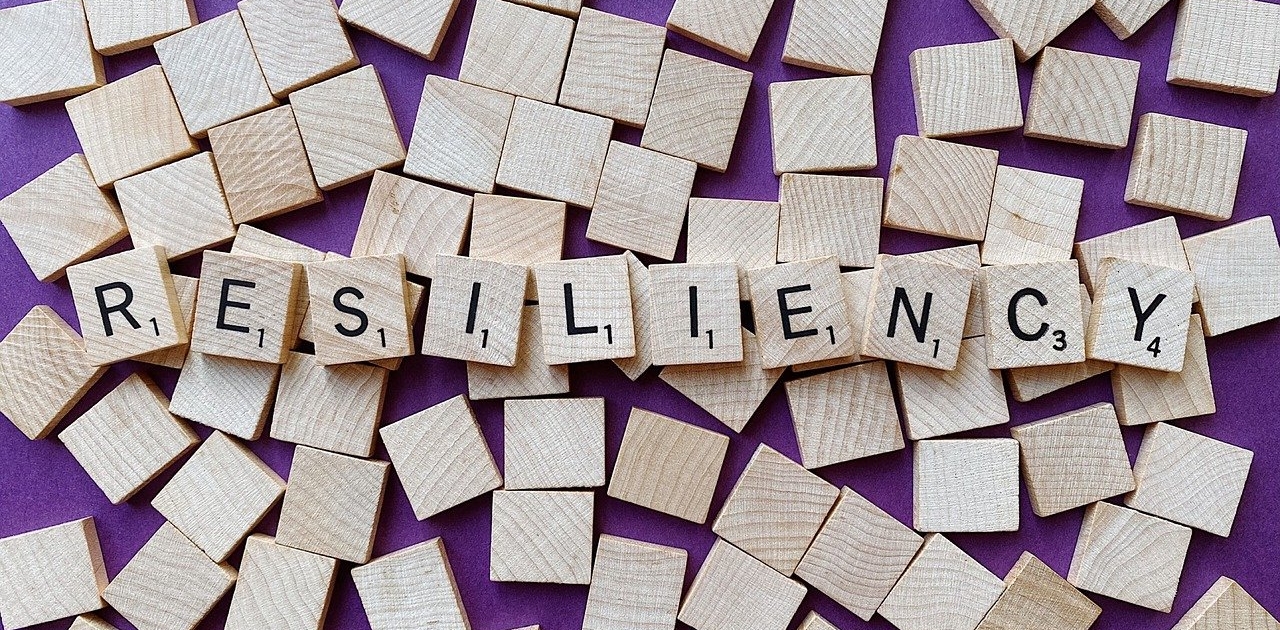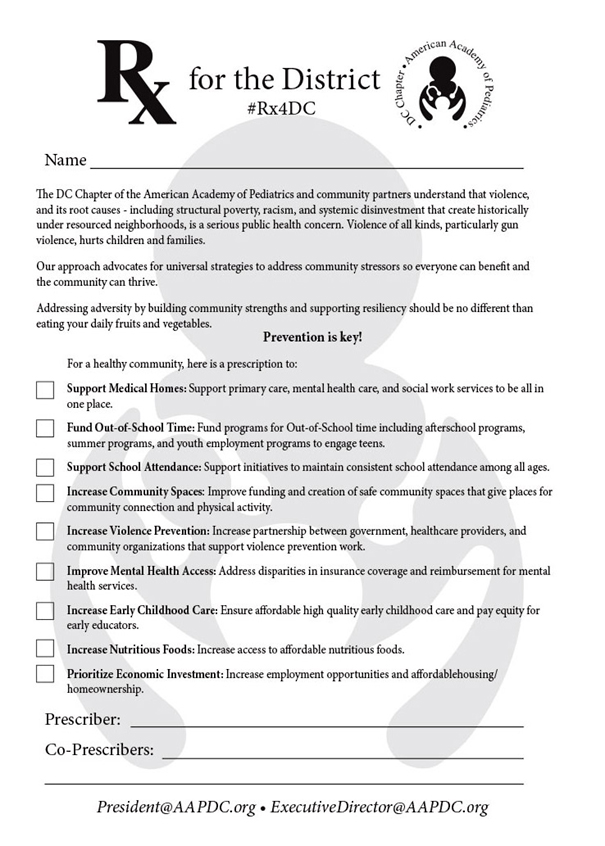The District of Columbia Chapter of the American Academy of Pediatrics (DCAAP) represents over 470 medical students, pediatric trainees, pediatric health care providers and pediatricians in DC. DCAAP’s mission is to promote the optimal health and development of children and adolescents of Washington, D.C. in partnership with their families and communities, and to support the pediatricians who care for them. Many pediatricians at Children’s National are active members of DCAAP.
In June 2023, chapter leaders and members met to discuss our advocacy priorities for the upcoming year. There was concern amongst members about the increasing rates of gun violence in DC neighborhoods and how this exposure negatively influences the lives of children and families. Gun violence is a public health issue in that it is a preventable problem which impacts the health and well-being of individuals and their communities. As pediatricians, we recognize the relationship between adverse community environments and adverse childhood experiences. Exposure to violence, poverty and discrimination in communities contributes to adversities that children experience including food insecurity, poor school attendance and chronic mental illness.
Following this meeting, DCAAP devoted the upcoming year to hearing from, learning from, and working alongside community experts to understand the community’s existing strengths, underlying stressors and to collectively brainstorm ways in which we can address the root causes of violence in communities.
In the fall, DCAAP held its symposium which featured the incredible advocate, thought leader, and research Dr. Wendy Ellis, director of the Center for Community Resilience at The George Washington University’s Milken Institute, School of Public Health. Dr. Ellis highlighted how public narratives about the community negatively reinforce stereotypes about Black and Brown teens and subsequently, public policies implemented are punitive and reactionary. These thoughts were echoed by Yazid Jackson (Director of Restorative DC), Eduardo Ferrer (policy director of Georgetown’s Juvenile Justice Initiative), Paige Hoffman (chief of Office of School Improvement and Supports from DC public schools), and Chamiya Carnathan (teen advocate from Mikva Challenge). The audience, which included pediatricians, community advocates, and community experts, worked in small groups to identify protective factors in the community and brainstorm how DCAAP could be part of the public discourse on supporting those protective factors.
In March 2024, DCAAP hosted its annual Advocacy Day for trainees and community pediatricians where participants heard from Dr. Annie Andrews, co-founder of Their Future, Our Vote, who has been promoting issues important to children even with the political climate was challenging. The audience, with support from community experts LaDon Love (executive director of SPACES in Action), Tayo Belle (deputy director of School Justice Project), and Kayla Higgs (program coordinator at Mikva Challenge), starting prioritizing the ideas generated from the discussions at the fall symposium.
Throughout the spring, DCAAP continued to host discussions with DCAAP members and community members to craft recommendations that culminated in a “Prescription for the District,” which was shared with the community in May 2024. Community experts were present to discuss their perception and hopes of the “Prescription for the District” implementation. Dr. Ana Caskin (medical director of School Based Health Centers at two DC high schools), Doriun Brown (family services coordinator at Georgetown University’s Mobile Unit), Jade Epps (student at University of DC), Eduardo Ferrer (policy director of Georgetown’s Juvenile Justice Initiative), Candis Hemphill (parent representative from SPACES in Action), and Raymond Weeden (executive director of Thurgood Marshall Academy Public Charter High School).
The prescription starts with the acknowledgement that identifying and addressing root causes of violence is a public health issue and emphasizes that addressing and promoting the strengths of the community helps everyone in the community.
Prescription for the District:
What are the next steps for “Prescription for the District”?
Our “Prescription for the District” is a call to action. DCAAP, along with Children’s National colleagues, aims to continue building a coalition of gun violence prevention advocates who are dedicated to supporting and creating universal, preventable strategies for thriving communities.
Header image from WOKANDAPIX from Pixabay






